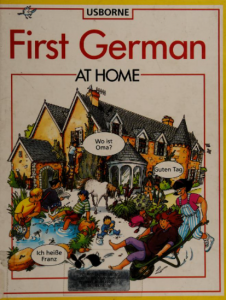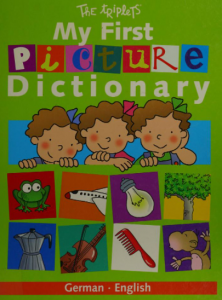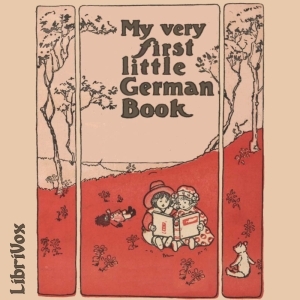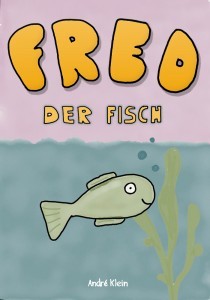André Klein's Blog, page 4
May 25, 2021
Advance Your German With These 11 Award-Winning Screenplays
Reading German novels and short stories is a solid way to boost your vocabulary and learn how to grasp grammar in context. But more often than not, due to overly descriptive prose and syntactical finesse the main points of a narrative can get lost, especially for beginners.
Having said that, I don’t think that learners should wait and study for many years before they can enjoy and benefit from reading authentic German literature. It’s simply a matter of finding the right texts.
I’m always on the lookout to help German learners discover (narrative) texts which either use simplified language, a minimalist style or are accessible in other ways.
Recently I talked about using German stage plays and sketches and the power of learning German with dialogues. Today I’d like to extend this idea into the realm of movies.
Why learn German with screenplays?Most movies have some form of dialogue. Learning German with dialogues can be fun and refreshing, because you focus on the essentials of two (or more) humans speaking to each other. You can pick up on natural nuances of speech, idioms, etc. and just get into the general groove of back and forth. But why else read German screenplays if you’re not a Hollywood producer?
First of all, it can make watching a German movie more fun and productive. Having the original subtitles on your Netflix is great (especially if you use this extension to enable bilingual subs and lookup functions), but even then, sometimes the onslaught of new vocabulary is just too much. It can therefore be helpful to actually sit down with the screenplay and study the lines in context, without skipping back and forth on your screen.
If there’s an option to get the PDF, you can even print them out (or put them on your tablet) and get to work on these scripts with a marker, scrawling translations in the margins, etc. Sometimes the mere act of “reading with a pencil” and noting down translations goes a long way towards remembering.
Another benefit of learning German with screenplays are the stage directions, i.e. all the things that happen on screen but aren’t part of the dialogue, monologues or voiceover. These are often very simple sentences like “Peter goes to the window, opens it, smiles”. In other words, it’s like reading a novel, but with the absolute minimum of embellishments. After all, these are designed to instruct directors and actors how to perform certain actions, not to show off the author’s mastery of Konjunktiv II or keeping up with an infinitely nested web of subclauses.
Excited to take a peek at some German movie scripts, perhaps even of something you’ve already seen yourself? Below I’ve collected a selection of scripts for popular German movies, and links to further resources.
 Hanna Arendt (2012)
Hanna Arendt (2012)IMDb rating: 7.1/10
Hannah Arendt is a biographical drama directed by Margarethe von Trotta, starring Barbara Sukowa, which follows the life of German-Jewish philosopher Hannah Arendt. The film specifically deals with Arendt’s response to the 1961 trial of Adolf Eichmann, and her controversial coverage of it for the New York Times.
The Deutsche Filmakademie e.V. has made the original screenplay by Pamela Katz and Margarethe von Trotta available here.

IMDb rating: 7.8/10
Systemsprenger is a multi-award-winning German drama written and directed by Nora Fingscheidt about nine-year-old Bernadette “Bennie” (Helena Zengel) who goes through a never-ending sequence of foster families, care facilities and anti-aggression-trainings, driven by an unbridled energy to break anyone and anything in her path.
You can find the original screenplay by Nora Fingscheidt here.

IMDb rating: 7.6/10
This historical drama directed Marc Rothemund deals with the last days of Sophie Scholl, the famous 21-year-old member of the non-violent anti-Nazi German Resistance Movement “The White Rose”, who was found guilty of high treason and sentenced to death.
The original screenplay by Fred Breinersdorfer was made available to the public on the website of the association of German screen writers and you can read it here.
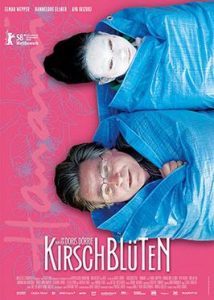
IMDb rating: 7.6/10
This 2008 drama directed by Doris Dörrie tells the story of terminally ill man Rudi (Elmar Wepper) who travels to Japan after the sudden passing of his wife Trudi (Hannelore Elsner), reflecting on his life and the mysteries of missed opportunities.
You can read the original German screenplay here.

IMDb rating: 7.2/10
This tragicomedy written and directed by Yasemin Şamdereli deals with the issue of identity and belonging of Turkish foreign workers in Germany across multiple generations. It was awared the “Deutscher Filmpreis 2011” for best screenplay.
The Deutsche Filmakademie e.V. made the script available for free here.

IMDb rating: 8.2/10
This acclaimed TV-series by German public broadcaster ARD deals with two families in East-Berlin in the years 1980-1990 over four seasons in the district of Weißensee in East-Berlin Pankow.
The screenplays for episodes 1, 2, 3, 4, 5 and 6 of the first season are available on the website of the association of German screenwriters.
Further ResourcesScreenplays for nominees of Deutscher Filmpreis: deutscher-filmpreis.de/drehbuecher/Screenplays for TV-Series (e.g. Tatort, Weißensee) and other movies: drehbuchautoren.de/stichwort-drehbuch–
The post Advance Your German With These 11 Award-Winning Screenplays appeared first on LearnOutLive.
May 21, 2021
Free German Children’s Books For Language Learners Young and Old
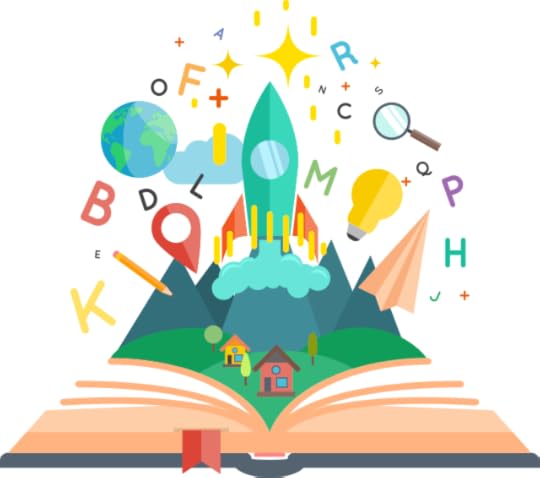
Tree vector created by macrovector – www.freepik.com
German Textbooks For ChildrenFirst German: At HomeMy first picture dictionary: German-EnglishGerman for Children: Fun, Activity-Based Language LearningFree Classic German Children’s Books From The Public DomainDer StruwwelpeterMax und MoritzMy Very First Little German BookFree Contemporary German Language Books For Children29 Free German Children’s Books by Hans WilhelmChildren’s Books About Environmental IssuesChildren’s Books Books About Engineering And PoliticsGerman Children’s Books For German LearnersLearning German with stories is a great method to practice and expand your vocabulary and grammar. But where to start? Literary German short stories or classic German novels may be intimidating for beginners or simply not everyone’s cup of tea.
So how about German children’s books? The sentences are short, there are often illustrations to support text comprehension, and most German books for children make do with a rather basic vocabulary.
Admittedly, most stories aimed at third-graders will not put adult readers at the edge of their seat, but working with these very simple narrative text can be an excellent way to practice German in a non-threatening way.
In the following article, I’d like to present a number of German language books for children that come in various formats, but most importantly, are free to download (or borrow) and enjoy.
German Textbooks for ChildrenBut before we dive into the world of German children’s books written for young native speakers, let’s have a look at freely available textbooks, picture dictionaries, activity books and other German learning books for children. Most of these are free to borrow from the Internet Archive. It’s as simple as creating an account and then clicking the blue “Borrow” button above the preview. Keep in mind though that different books have different loan-durations. If there’s only one copy available, the loan window is one hour, if there are more the loan duration is either one hour or 14 days.

Note: one hour may not sound like much, but if you’re currently the only one borrowing the book, you can just renew and resume reading after 60 minutes. Also, young children may find it hard to concentrate longer than 60 minutes anyway. You can find out more about the Internet Archive’s Borrowing Program here.
First German: At Home
Publisher: Tulsa, OK : EDC Pub.
This fundamental German language textbook for children covers all the basics from saying hello and goodbye, describing one’s house, rooms and neighborhood. It teaches how to count from one to 10, the words for basic objects around the house, telling time, colors and everything else young learners need to get started.
 loan duration: 1h or 14 days
loan duration: 1h or 14 days
My first picture dictionary: German-English
Publisher: London : Wayland
This picture dictionary is a fun and intuitive way for children to learn the German language. It includes common topics, from animals, family, colors to transportation. Perfect for beginners, it is illustrated with full color pictures on 63 pages.
 loan duration: 1h
loan duration: 1h
German for Children: Fun, Activity-Based Language Learning
Publisher: New York : McGraw-Hill
This book aims to introduce children to the excitement of learning a new language and culture. It includes a variety of activities, games and songs. Through various chapters young learners can the basics like counting from one to 10, colors, describing things, expressing likes and dislikes, and much more.
 loan duration: 1h
loan duration: 1h
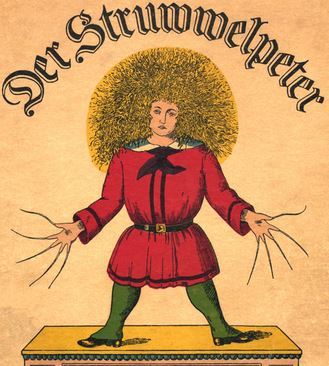 One of the most well-known sources for free German children books online is the public domain, .i.e. the place where books (and other works of art) go when their copyright has run out.
One of the most well-known sources for free German children books online is the public domain, .i.e. the place where books (and other works of art) go when their copyright has run out.
For example, the classic German children’s book Der Struwwelpeter, first published in 1845 as a kind of cautionary tale, is available for free on Project Gutenberg in EPUB, MOBI (Kindle) and other formats because the copyrights expired. You can also listen to a free audiobook version on Librivox.
Struwwelpeter consists of ten illustrated and rhymed stories, all of them designed with a clear moral and showing consequences of bad behavior in often absurdly exaggerated ways. A classic in the world of children’s books, Struwwelpeter is one of the earliest books for children that combines visual and verbal narratives in this format, long before comic books became a staple of popular culture.
Another popular classic is Max und Moritz – Eine Bubengeschichte in sieben Streichen (Max and Moritz: A Story of Seven Boyish Pranks). Yet another precursor to comic books, these illustrated stories about the exploits of the “terrible duo” Max and Moritz were written and illustrated by Wilhelm Busch and published in 1865. The original text plus colored illustrations are available on Project Gutenberg. A free audio version is also available via Librivox
My Very First Little German Book
This book was originally published in 1900 (Hodder & Stoughton) and is now in the Library of Congress Rare Books catalog. This little bilingual gem with illustrations can be enjoyed as a PDF download or directly in your browser. And yes, there’s a free Librivox audio book.
Free Contemporary German Language Books For ChildrenNow, finding free German children’s books or fairy-tales in the public domain is not difficult, but there’s a problem with books or stories that are more than 100 years old. Not only are the ideas and strict morals (as in Struwwelpeter) bewildering to modern readers, also these texts often use strange vocabulary, idioms and other stylistic devices which are outdated and hard to grasp even for native German speakers.
Luckily, there are many other online sources for free German children’s books than just the public domain:
29 Free German Children’s Books by Hans WilhelmHans Wilhelm, a renowned children’s book author whose works have been translated into thirty languages, generously offers out-of-print editions of his books as free PDF downloads. Wilhelm’s books are written in clear and contemporary language, and come with lovely full-color illustrations. Also, since he offers his children’s books in multiple languages, you can read the English and the German editions side by side, which can be helpful for reading-comprehension. Keep in mind that the titles of the book aren’t always exactly translated, e.g. “Wie man einen Dino besiegt” is called “Tyrone the Horrible” in English, but you can easily find the correct version by looking at the covers.
Additionally, there are many free German books for children published by federal German agencies, leagues and associations, which are designed as educational material for youngsters but will do just fine for German language-learning purposes.
Free German Books For Children About Environmental IssuesFirst of all, there’s the Bundesumweltamt (Federal Environment Agency) whose books deal with environmental issues like climate, water and waste-management. To filter out their children’s books from the thousands of publications, select Kinderbuch from the drop-down menu under Reihe and click on Anwenden.
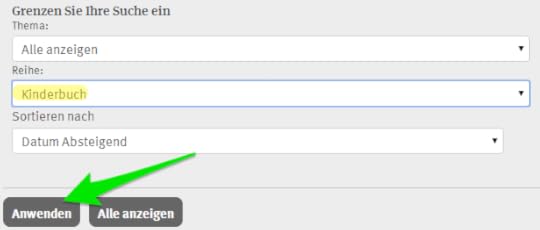
Once you get to the search results for their children’s books, look for the buttons Downloaden und Bestellen under each title. Not all of the books are always available, but if you find a Downloaden link you’ll get an immediate PDF download, and even better: if you click on Bestellen you can get a free physical copy delivered to your doorstep, free shipping worldwide. How cool is that?
Next up is the Fachagentur Nachwachsende Rohstoffe e.V. (Agency for Renewable Resources) and their Bauer Hubert (farmer Hubert) children’s book series. You can browse and download their short books in PDF format from their site.
Another free educational resource by the Bundesamt für Naturschutz (Federal Agency for Nature Protection) is Kinatschu, a children’s magazine about nature protection and conversation which can be downloaded as PDF here.
Free German Children’s Books About Engineering And PoliticsThere is also think-ING: an online platform about engineering studies, initiated by technical-academic and industrial associations in Germany. They offer two children’s books, one called Energie & Strom (energy and electricity) and Meine Freundin, die ist Ingenieurin (my girlfriend, she’s an engineer). The books are produced by the hiqh-quality Carlsen publishing house and can be read in-browser.
Last but not least, the Hamburgische Bürgerschaft (Hamburg Citizenry) has two German children’s books called Pixi-Wissen: Politik und Demokratie (politics and democracy) and Pixi-Wissen: Ich habe eine Freundin, die ist Abgeordnete (I have a girlfriend, she’s a representative). They also have a children’s detective series called Alster Detektive which is available as an audiobook.
The two children’s books are only available as physical copies. They are free to order (within Germany). The Alster Detektive audiobook can be obtained as free CDs or downloadable mp3s/rar archive. You can find the order (zum Bestellen) and download (zum Downloaden) links here.
German Children’s Books For German LearnersIf you’re looking for German children’s books that are specifically aimed at language learners, you can also check out my own two publications called Bert das Buch and Fred der Fisch.
These books are designed as entry-level reading material for beginners both young and old. They both come with extensive vocabulary, illustrations and text-comprehension questions and are available as Amazon Kindle ebooks and other formats.
Have you used German children’s book in your studies? Which ones do you recommend? Tell us in the comments!
–
The post Free German Children’s Books For Language Learners Young and Old appeared first on LearnOutLive.
April 21, 2021
8 German Novels For Beginners and Intermediate German Learners

Some rights reserved by cafemama
Learning German with textbooks and worksheets only gets you so far. After a while, you need to start putting the pieces together by speaking to people, watching German movies, reading blogs and newspapers or German short stories. Once you feel comfortable reading shorter pieces, it’s time to progress to book-length reading materials. Today, I’d like to present eight German novels and novellas which are both engaging but still relatively easy to read for beginners and intermediate German learners.
Many of these were also adapted into movies, TV series or radio plays. I’ve linked these and other resources whenever available.
 Note: While none of these novels are specifically designed for learners, they are still among the more accessible (modern) classics. If you’re looking for German stories that include vocabulary and are written with the learner in mind, take a look at our German learning library.(Not Just) For Kids
Note: While none of these novels are specifically designed for learners, they are still among the more accessible (modern) classics. If you’re looking for German stories that include vocabulary and are written with the learner in mind, take a look at our German learning library.(Not Just) For KidsFirst of, let’s take a look at some classic German novels for children and youth which I think may still be interesting for adult readers. Many of these works make do with shorter sentences and a generally more straightforward syntax, so they can be a solid entrypoint into reading full-length books in German.
Timm Thaler oder Das verkaufte Lachen – James Krüss (1962)Timm Thaler oder Das verkaufte Lachen (Timm Thaler or the sold laughter) is a 1962 children’s novel by German author James Krüss. It tells the story of a boy who trades his laughter to a wealthy Baron in exchange for the ability to win any bet he makes. The popular story was subsequently adapted into a 13-part German children’s television miniseries in 1979, an animated series, movies, and many other adapations.
 Kindle: via Amazon
Kindle: via Amazon
 ePub: via buecher.de
ePub: via buecher.de
 Free preview: via mytolino.com
Free preview: via mytolino.com
 TV series: Youtube
TV series: Youtube
Die unendliche Geschichte – Michael Ende (1984)
The Neverending Story (German: Die unendliche Geschichte) is a fantasy novel by German writer Michael Ende which was later adapted into TV series and films of worldwide acclaim
The novels begins with a lonely boy named Bastian and the strange book that draws him into the mysterious world of Fantastica which is under threat by “The Nothing”. Only a human can save the enchanted kingdom by giving its ruler, the Childlike Empress, a new name. But the journey to her tower is paved with peril, leading past dragons, monster and magical beings. Once Bastian begins his quest, he may never return. As he is drawn deeper into Fantastica, he must find the courage to face increasingly terrifying threats and his own undiscovered thruths.
 Kindle: via Amazon
Kindle: via Amazon
 ePub: via buecher.de
ePub: via buecher.de
 Free PDF preview: via buecher.de
Free PDF preview: via buecher.de
 Movie Trailer (1984): YouTube
Movie Trailer (1984): YouTube
Momo – Michael Ende (1973)
Another famous novel by Michael Ende, Momo deals with the concept of time and how it is used in modern society. The full title in German translates to “Momo, or the strange story of the time-thieves and the child who brings the stolen time back to the people”. The book is also simply known as Die grauen Männer (The Grey Gentlemen).
Momo is illiterate and cannot count, and she doesn’t know how old she is. She is famous in the neighbourhood because she has the extraordinary ability to listen. Simply by being with people and listening to them, she can help them solve their problems.
 Kindle: via Amazon
Kindle: via Amazon
 ePub: via buecher.de
ePub: via buecher.de
 Free ePub preview: via mytolino.com
Free ePub preview: via mytolino.com
 Movie Trailer (1986): YouTube
Movie Trailer (1986): YouTube
Classic German Novels (And Novellas)
Next up, let’s have a look at some literary classics. The vocabulary and syntax here is obviously more challenging than in the books presented above. These are by no means books for absolute beginners but instead for those beginning their journey reading the great German classics. For more simplified versions of these books, see here.
Die Verwandlung – “Metamorphosis”, by Franz KafkaFirst published in 1915 and considered one of the most important 20th century works of fiction, this German novella by Franz Kafka is still studied in schools and universities worldwide. Contrary to many older German literary classics, Kafka’s prose is relatively accessible for German learners.
 Kindle: via gutenberg.org
Kindle: via gutenberg.org
 ePub: via gutenberg.org
ePub: via gutenberg.org
 HTML: via gutenberg.org
HTML: via gutenberg.org
 PDF: via freilesen.de
PDF: via freilesen.de
 Audiobook: Youtube
Audiobook: Youtube
vocabulary: 1, 2, 3 via Quizlet
Homo Faber. Ein Bericht, by Max Frisch
Published in 1959, this German novel by Swiss author Max Frisch is about a successful engineer called Walter Faber, who prefers facts to feelings, logic to love and empirical data to emotions. He fares quite well with this rational approach to life until he’s faced with a chain of stupefying coincidences that force him to reevaluate his entire worldview.
Written in modern German from a first-person perspective, this novel is a great way to start can be a good starting point for German students interested in full-length reading material which is neither too challenging nor too shallow. Homo Faber is considered a modern German classic and was also made into a movie by German director Volker Schlöndorff starring Sam Shepard.
 Kindle: via Amazon
Kindle: via Amazon
 ePub: via bücher.de
ePub: via bücher.de
 PDF: Google
PDF: Google
 Audiobook: Youtube
Audiobook: Youtube
vocabulary: reading comprehension quiz, flashcards via Quizlet
Die Schachnovelle – “The Royal Game”, by Stefan Zweig
This novella, written between 1938 and 1941 in Brazilian exile, is Stefan Zweig’s last and most famous work. At its heart is the confrontation of a Gestapo prisoner with the psychological ramifications of his situation on the background of a passenger steamer full of affluent travelers and their superficial attitude.
The protagonist, Dr B, put in solitary confinement by the Nazis obsesses about chess in order to maintain his sanity. He plays against himself and is developing a split personality which leads to a breakdown. Now officially declared “insane”, he’s released, but when he finds himself travelling on a passenger steamer together with the world chess champion Czentovic, he’s forced to stare into the abyss once again.
This novella is suitable for German learners due to its brevity, basic vocabulary and sentence structures.
 Kindle: via feedbooks
Kindle: via feedbooks
 ePub: via buecher.de
ePub: via buecher.de
 PDF: via stefanzweig.de
PDF: via stefanzweig.de
 Audiobook: Youtube
Audiobook: Youtube
vocabulary: text comprehension quiz
Der Richter und sein Henker – “The Judge and His Hangman”, by Friedrich Dürrenmatt
Originally published in a Swiss weekly journal as a serial novel between 1950 and 1951, this mystery novel by Friedrich Dürrenmatt is a classical detective story with a crime at its center and a search for the perpetrator.
This German novel is required reading in many German schools, and it’s also appropriate for intermediate German learners looking for suitable reading material, due to its relatively straightforward plot and plain language.
 Kindle: via Amazon
Kindle: via Amazon
 ePub: via bücher.de
ePub: via bücher.de
 PDF: Google
PDF: Google
 Audiobook: Youtube
Audiobook: Youtube
vocabulary: text comprehension quiz
Das Parfum. Die Geschichte eines Mörders – “Perfume: The Story of a Murderer”, by Patrick Süskind
This 1985 historical/mystery/coming-of-age novel by German author Patrick Süskind is about a murderer with a supernatural sense of smell. Born with no body scent in 18th-century Paris, protagonist Baptiste Grenouille is stalking and killing virgins, hunting for the “perfect scent”.
Translated into 48 languages and sold more than 20 million times, Das Parfum is one of the most sucessfull German novels of the 20th century.
While Süskinds narrative style may sometimes be a bit ornate, this novel can be a good way for German learners to expand their vocabulary without sentence structure and plot being too difficult too follow.
 Kindle: via Amazon
Kindle: via Amazon
 ePub: via bücher.de
ePub: via bücher.de
 PDF: Google
PDF: Google
 Audiobook: Youtube
Audiobook: Youtube
vocabulary: flashcards via Quizlet
How To Get Free German Novels
All of the above suggestions are considered literary classics. If you’re looking for more contemporary German novels, take a look at this article and find out how to download tons of German novels for free onto your tablet, ereader, smartphone or desktop.
Combine these free German ebooks with interactive dictionaries on Android or iOS and you’ll learn tons of new words in no time! Who needs textbooks, anyway?
–
The post 8 German Novels For Beginners and Intermediate German Learners appeared first on LearnOutLive.
April 15, 2021
Read Free Stage Plays & Sketches To Improve Your German Conversation Skills
After having released my first book of easy German dialogues last year, I’ve been thinking a lot about the immediacy of the spoken word, and how this more direct way of storytelling can be helpful for language learners.
There’s something about the back-and-forth of two (or more) people speaking that just pulls you right into the natural flow of language. You don’t need to parse elaborate narrative descriptions and inner monologue just to figure out what’s happening. It’s much more immediate in that sense, especially if you’re looking to improve your active (spoken) German fluency.
Therefore, today I’d like to share some resources online where you can find tons of German plays and sketches to continue learning with dialogues.
First Acts And SketchesFirst off, I’d like to point you to the Reinehr-Verlag from Mühltal, a small publisher founded by dramatist Wilfried Reinehr. On their website reinehr-verlag.de you can find the full first act of many plays by Reinehr (and others) in PDF.
These are “just” the first acts obviously, so the narrative arcs won’t be complete by the end of your read-through, but since each document is about 20-30 pages long you’ll find ample opportunity to learn new words, idioms, and just enjoy the intricacies of German dialogue.
Note: They also have plays in Mundart, i.e. in dialects such as Swabian, Bavarian, Platt etc. which may be interesting for those of you curious about the wide range of German dialects, but for average readers I’d advise to stick to the plays in Hochdeutsch (standard German).
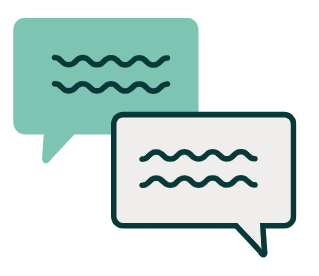 Secondly, for those of you looking for something shorter, I’d like to point you to Groll und Schmoll (“grudge and pout”), the project of dramatist Peter Futterschneider. They publish comedies, fairytales, sketches and more.
Secondly, for those of you looking for something shorter, I’d like to point you to Groll und Schmoll (“grudge and pout”), the project of dramatist Peter Futterschneider. They publish comedies, fairytales, sketches and more.
If you visit grollundschmoll.de you’ll find 26 full-length sketches in German. In Bayer-Frühstück for example a husband, wife and their daughter are discussing the benefits of natural nutrition while ingesting a whole smorgasbord of colorful pharmaceuticals.
Many of these sketches are just a few pages long, and use simple conversational German so you can easily work through them with your tutor or by yourself in one or two sessions.
Similar sketches can be found on jabberworks.de, the website of Bernd Walf. In this one for example three pensioners aren’t quite sure about the exact date of Easter and try to apply a Gaussian formula which may or may not make the determination process easier.
Bring on The ClassicsLast but not least, if you’re looking for something more challenging, you can find many classic German plays, such as Goethe’s Faust or Georg Büchner’s Woyzeck on Project Gutenberg. These literary works are all in the public domain since their copyrights have expired and you can read them online or in various ebook formats.
But wait!
While it may seem daunting to read these classics in the original, not all of them are impossibly difficult. Don’t believe me? Take the play Von morgens bis mitternachts (“from morning to midnight”) by Georg Kaiser from 1912 for example.
From Morning to MidnightIt’s a story about a bank cashier who falls in love with a woman, steals money from his bank for her, is still rejected by her, then tries (unsuccessfully) to find fulfilment with the stolen money, but is eventually betrayed.
If you look at the script on Project Gutenberg you may actually be surprised to find that the dialogues are short and sweet, some lines just a few words long.
In 1920 this play was adapted into a silent expressionist film which now is also on YouTube, with modern music by Brambles and Nils Frahm. This film adaptation pared down the original script even further, so that there are just a few lines here and there, perfect for a relaxed study session. (You can find an alternate version with English translation here)
The Man OutsideAnother classic play I’d like to recommend is Draußen vor der Tür (The Man Outside) by Wolfgang Borchert. I’ve already recommended Borchert for German learners due to his brevity here. This famous play explores the hopelessness of a post-war soldier, Beckmann, who returns from Russia to find that he has lost his wife, his home, and his illusions. You can find the full text here. On YouTube there are multiple audiobook versions of this classic:
And since we’re already talking about accessible classics, I’d like to recommend reading any of the plays by Swiss author Friedrich Dürrenmatt, such as Der Besuch der alten Dame, Die Physiker, Ein Engel kommt nach Babylon, etc.
These works are not (yet) in the public domain but you can find them for a moderate sum wherever you buy your books.
The PhysicistsIf you can find a copy there’s an excellent bilingual edition of Die Physiker released in in 1965. There’s also a 1964 film adaptation of the same play on YouTube which follows the original play very closely:
Which German plays have you read? Let me know below!
–
The post Read Free Stage Plays & Sketches To Improve Your German Conversation Skills appeared first on LearnOutLive.
Free German Plays & Sketches: Improve Your German Conversation Skills

After having released my first book of easy German dialogues last year, I’ve been thinking a lot about the immediacy of the spoken word, and how this more direct way of storytelling can be helpful for language learners.
There’s something about the back-and-forth of two (or more) people speaking that just pulls you right into the natural flow of language. You don’t need to parse elaborate narrative descriptions and inner monologue just to figure out what’s happening. It’s much more immediate in that sense, especially if you’re looking to improve your active (spoken) German fluency.
Therefore, today I’d like to share some resources online where you can find tons of German plays and sketches to continue learning with dialogues.
First Acts And SketchesFirst off, I’d like to point you to the Reinehr-Verlag from Mühltal, a small publisher founded by dramatist Wilfried Reinehr. On their website reinehr-verlag.de you can find the full first act of many plays by Reinehr (and others) in PDF.
These are “just” the first acts obviously, so the narrative arcs won’t be complete by the end of your read-through, but since each document is about 20-30 pages long you’ll find ample opportunity to learn new words, idioms, and just enjoy the intricacies of German dialogue.
Note: They also have plays in Mundart, i.e. in dialects such as Swabian, Bavarian, Platt etc. which may be interesting for those of you curious about the wide range of German dialects, but for average readers I’d advise to stick to the plays in Hochdeutsch (standard German).
 Secondly, for those of you looking for something shorter, I’d like to point you to Groll und Schmoll (“grudge and pout”), the project of dramatist Peter Futterschneider. They publish comedies, fairytales, sketches and more.
Secondly, for those of you looking for something shorter, I’d like to point you to Groll und Schmoll (“grudge and pout”), the project of dramatist Peter Futterschneider. They publish comedies, fairytales, sketches and more.
If you visit grollundschmoll.de you’ll find 26 full-length sketches in German. In Bayer-Frühstück for example a husband, wife and their daughter are discussing the benefits of natural nutrition while ingesting a whole smorgasbord of colorful pharmaceuticals.
Many of these sketches are just a few pages long, and use simple conversational German so you can easily work through them with your tutor or by yourself in one or two sessions.
Similar sketches can be found on jabberworks.de, the website of Bernd Walf. In this one for example three pensioners aren’t quite sure about the exact date of Easter and try to apply a Gaussian formula which may or may not make the determination process easier.
Bring on The ClassicsLast but not least, if you’re looking for something more challenging, you can find many classic German plays, such as Goethe’s Faust or Georg Büchner’s Woyzeck on Project Gutenberg. These literary works are all in the public domain since their copyrights have expired and you can read them online or in various ebook formats.
But wait!
While it may seem daunting to read these classics in the original, not all of them are impossibly difficult. Don’t believe me? Take the play Von morgens bis mitternachts (“from morning to midnight”) by Georg Kaiser from 1912 for example.
It’s a story about a bank cashier who falls in love with a woman, steals money from his bank for her, is still rejected by her, then tries (unsuccessfully) to find fulfilment with the stolen money, but is eventually betrayed.
If you look at the script on Project Gutenberg you may actually be surprised to find that the dialogues are short and sweet, some lines just a few words long.
In 1920 this play was adapted into a silent expressionist film which now is also YouTube, with modern music by Brambles and Nils Frahm. This film adaptation pared down the original script even further, so that there are just a few lines here and there, perfect for a relaxed study session. (You can find an alternate version with English translation here)
Another classic play I’d like to recommend is Draußen vor der Tür (The Man Outside) by Wolfgang Borchert. I’ve already recommended Borchert for German learners due to his brevity here. This famous play explores the hopelessness of a post-war soldier, Beckmann, who returns from Russia to find that he has lost his wife, his home, and his illusions. You can find the full text here. On YouTube there are multiple audiobook versions of this classic:
And since we’re already talking about accessible classics, I’d like to recommend reading any of the plays by Swiss author Friedrich Dürrenmatt, such as Der Besuch der alten Dame, Die Physiker, Ein Engel kommt nach Babylon, etc.
These works are not (yet) in the public domain but you can find them for a moderate sum wherever you buy your books. If you can find a copy there’s an excellent bilingual edition of Die Physiker released in in 1965. There’s also a 1964 film adaptation of the same play on YouTube which follows the original play very closely:
Which German plays have you read? Let me know below!
–
The post Free German Plays & Sketches: Improve Your German Conversation Skills appeared first on LearnOutLive.
March 12, 2021
4 Sites To Help You Improve Your German Pronunciation Which Arenât Google Translate

What do you do when you don’t know how to pronounce a German word? It’s a simple question, right? But there are many answers!
Today I’d like to share some resources that will help you find the right pronunciation of any German word out there within just a few seconds, no matter how offbeat or out of the ordinary.
And no, none of this includes being trained in the arcane arts of the International Phonetic Alphabet. If you can make sense of its squiggly set of symbols, good for you, but being able to hear a word with your ears is something else entirely.
Ready? Los geht’s!*
Let’s get the six-letter elephant out of the room first. That’s right, I’m talking about Google (Translate) of course. It’s so easy! Just pop in a German word, tap the little speaker icon and get a somewhat accurate result. I say “somewhat” because its results are non-human.
Admittedly, speech synthesis has come a long way since 1984’s Macintosh first crackly “Hello”. You can throw the strangest words into Google Translate (even weird neologisms as shown below) and thanks to its advanced neural network, it nearly always produces passable results. Emphasis may sometimes be off, but in 99% of the cases it gets the phonetics right.

Which is impressive enough. But if you’re like me, you still won’t trust AI blindly, no matter how advanced or newfangled. Especially when it comes to proper names, idioms or local varieties, I’d rather get the pronunciation straight from the horse’s â I mean â human’s mouth.
So, without further ado, here are some of my favorite resources for getting real-world pronunciations from native German speakers:
Wiktionary
Maybe it sounds like an obvious choice, but Wikipedia’s German dictionary has more than 125.588 entries, and most of them come with recorded pronunciations by native speakers.
For the linguistics nerds among you, Wiktionary always lists the IPA as well, which can come in handy, especially when dealing with varieties. For example, have you ever wondered how to pronounce words like “König” correctly? Is there a hard “c” at the end like in “Mac” or is it a soft “ch” sound like in “ich”? Both are of course correct, and Wiktionary neatly lists the varieties in IPA and with recordings.
Another cool thing about Wiktionary is that it also has tons of idioms, sayings and adages, most of them with recordings, so that you can easily find out where the emphasis goes in sentences like “eine Hand wäscht die andere” or “wo gehobelt wird, fallen Späne“**.
Forvo
If Wiktionary doesn’t have the word you’re looking for, take a look at Forvo next, a site that aims to get human recordings of all the words in the world. It’s an admittedly ambitious project where native speakers are invited to record themselves. I’ve been using Forvo for a number of languages for many years now and it has been an invaluable resource, especially when I wasn’t able to find the pronunciation anywhere else.
For many words you’ll find a number of different recordings from speakers across different regions, which can help to get a sense of varieties.
Dict.cc
As some of you know dict.cc is one of my favorite German online dictionaries, especially for idioms, most of which also come with excellent human recordings. Just listen to the German phrase for “You must be psychic” for example (click on the little speaker icon to the right of the phrase).
Youglish
Last but not least, this is a cool site I’ve only discovered recently. Youglish lets you search through millions of Youtube videos and find the word you’re looking for on the second mark, with highlighted subtitles.
Not only can this be helpful to get some more real world context for a word, you can also use Youglish as a creative way of finding interesting video content based on topics you’re interested in.
Let take a German word infamous for its difficult pronunciation such as “Eichhörnchen” for example, and Youglish will return results from 153 different videos which you can browse through easily.
Nicht schlecht, oder?***
What are your favorite resources for getting German pronunciations? Any special tips or sites you like to use? Let me know in the comments!
—
* “Let’s go!”** “Where wood is chopped, splinters must fall.”
*** “Not bad, right?”
The post 4 Sites To Help You Improve Your German Pronunciation Which Aren’t Google Translate appeared first on LearnOutLive.
4 Sites To Help You Improve Your German Pronunciation Which Aren’t Google Translate

What do you do when you don’t know how to pronounce a German word? It’s a simple question, right? But there are many answers!
Today I’d like to share some resources that will help you find the right pronunciation of any German word out there within just a few seconds, no matter how offbeat or out of the ordinary.
And no, none of this includes being trained in the arcane arts of the International Phonetic Alphabet. If you can make sense of its squiggly set of symbols, good for you, but being able to hear a word with your ears is something else entirely.
Ready? Los geht’s!*
Let’s get the six-letter elephant out of the room first. That’s right, I’m talking about Google (Translate) of course. It’s so easy! Just pop in a German word, tap the little speaker icon and get a somewhat accurate result. I say “somewhat” because its results are non-human.
Admittedly, speech synthesis has come a long way since 1984’s Macintosh first crackly “Hello”. You can throw the strangest words into Google Translate (even weird neologisms as shown below) and thanks to its advanced neural network, it nearly always produces passable results. Emphasis may sometimes be off, but in 99% of the cases it gets the phonetics right.

Which is impressive enough. But if you’re like me, you still won’t trust AI blindly, no matter how advanced or newfangled. Especially when it comes to proper names, idioms or local varieties, I’d rather get the pronunciation straight from the horse’s — I mean — human’s mouth.
So, without further ado, here are some of my favorite resources for getting real-world pronunciations from native German speakers:
Wiktionary
Maybe it sounds like an obvious choice, but Wikipedia’s German dictionary has more than 125.588 entries, and most of them come with recorded pronunciations by native speakers.
For the linguistics nerds among you, Wiktionary always lists the IPA as well, which can come in handy, especially when dealing with varieties. For example, have you ever wondered how to pronounce words like “König” correctly? Is there a hard “c” at the end like in “Mac” or is it a soft “ch” sound like in “ich”? Both are of course correct, and Wiktionary neatly lists the varieties in IPA and with recordings.
Another cool thing about Wiktionary is that it also has tons of idioms, sayings and adages, most of them with recordings, so that you can easily find out where the emphasis goes in sentences like “eine Hand wäscht die andere” or “wo gehobelt wird, fallen Späne“**.
Forvo
If Wiktionary doesn’t have the word you’re looking for, take a look at Forvo next, a site that aims to get human recordings of all the words in the world. It’s an admittedly ambitious project where native speakers are invited to record themselves. I’ve been using Forvo for a number of languages for many years now and it has been an invaluable resource, especially when I wasn’t able to find the pronunciation anywhere else.
For many words you’ll find a number of different recordings from speakers across different regions, which can help to get a sense of varieties.
Dict.cc
As some of you know dict.cc is one of my favorite German online dictionaries, especially for idioms, most of which also come with excellent human recordings. Just listen to the German phrase for “You must be psychic” for example (click on the little speaker icon to the right of the phrase).
Youglish
Last but not least, this is a cool site I’ve only discovered recently. Youglish lets you search through millions of Youtube videos and find the word you’re looking for on the second mark, with highlighted subtitles.
Not only can this be helpful to get some more real world context for a word, you can also use Youglish as a creative way of finding interesting video content based on topics you’re interested in.
Let take a German word infamous for its difficult pronunciation such as “Eichhörnchen” for example, and Youglish will return results from 153 different videos which you can browse through easily.
Nicht schlecht, oder?***
What are your favorite resources for getting German pronunciations? Any special tips or sites you like to use? Let me know in the comments!
—
* “Let’s go!”** “Where wood is chopped, splinters must fall.”
*** “Not bad, right?”
The post 4 Sites To Help You Improve Your German Pronunciation Which Aren’t Google Translate appeared first on LearnOutLive.
February 26, 2021
From âSneeze Shameâ to âHygiene Knightsâ: 10 Strange New German Words Created By The Pandemic
After more than one year in the grip of a global pandemic, our  daily lives have changed extensively. The way we work, travel, socialize and decompress have all undergone strange transformations. And these changes have begun to be reflected in the way we use language.
The Leibniz Institute for the German Language, an organisation for documenting and researching contemporary German language, has published a list of 1,200 brand-new pandemic-related German words. The German language is infamous for its long expressive compound nouns, so it’s no surprise that the pandemic has spurred the creation of many more.
Most of these words are related to the never-ending logistic and bureaucratic nightmare of managing individuals and society at large, such as the common “Mindestabstandsregelung” (minimum distance rule), the obligatory “Spuckschutztrennwand” (spit guard separation wall) or Angela Merkel’s own “Wiedereröffnungsorgien” (re-opening “orgies”).
In this article however, I’d like to focus on new German words that express some of the emotional, social and psychological realities of life under the coronavirus. We may not always be able to control what happens to us, and the sheer weight of such a crisis can be crushing and make us feel powerless, but finding creative new ways to talk about it can sometimes be a form of coping and empowerment. The following 10 words are a testimony to that creative spirit of language.
der Abstandsjubeltanz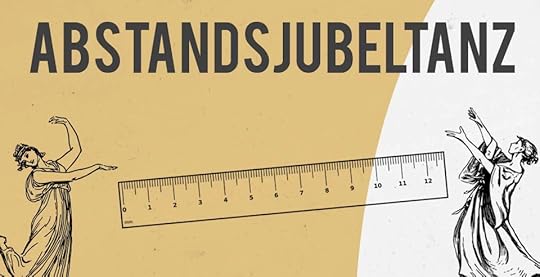
“distance celebration dance”
“rhythmical body movements in order to express happiness, in keeping with COVID-19 distance recommendations”
When receiving the good news about a promotion, child-birth, wedding, etc. pre-covid human beings used to celebrate with high-fives, hugs and kisses. In times of corona, we celebrate by flailing with arms and legs, safely distanced of course, whether by screen or the physical Mindestabstand.
das Abstandsbier
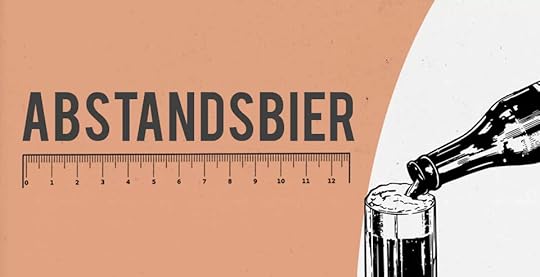
“distance beer”
“a beer which is enjoyed with others, in keeping with COVID-19 distance recommendations.”
Like in many other countries, the communal consumption of alcohol is of utmost importance in Germany; a great equalizer and social lubricant. But when all pubs have closed and you still want to meet for a beer with a friend, whether outside or on screen, it’ll have to be an Abstandsbier. Prost!
der Balkonklatscher

“balcony clapper”
“(often derogatory) for person who professes solidarity and acknowledgement for persons working in highly demanding or systemically relevant occupations, from open spaces by smacking their hands together.”
This new German word follows the mold of jesty German insults like Warmduscher (warm-showerer), Altpapiersammler (recyled paper collector) or Backofenvorheizer (oven pre-heater), where a seemingly inane activity such as taking a warm shower is personified into a noun to imply a personal weakness (often ironically). Some of these nouns outgrew their original denotation so that Warmduscher for example simply now means wimp.
The new Balkonklatscher is more complex. While it literally describes the person expressing gratitude from their balcony, it actually refers to the anger and frustration of nurses, doctors and social workers struggling with extreme strain and underwhelming salaries whom this applause doesn’t help one iota.
der Hygieneritter

“hygiene knight”
“(jokingly) for someone who honorably, patiently and conscientiously adapts his behavior according to the hygiene measures during the COVID-19 pandemic.”
This honorable knight doesn’t rescue damsels in distress nor does he fight with fiery dragons. His mortal enemy is approximately 50â200 nanometres in diameter, and his weapons of choice are hand sanitizer and staying at home. Pax vobiscum!
die Coronaausrede

“corona excuse”
“(not always entirely serious) justificatory statement to explain personal misconduct due to the COVID-19 pandemic or measures taken against it.”
Who would have guessed that a global pandemic supplies a whole gamut of new excuses for social and moral conduct? Don’t want to meet the in-laws? — “Sorry, it’s for their own safety.” Got caught while illegaly partying? — “All these people? Why, they are part of my extended family!”
In one incident in Cologne for example, a hit-and-run bicycle rider when asked why she’d escaped the scene of the accident instead of helping the person she’d crashed into, apparently claimed: “In times of Corona I can’t help anyone.”
der Lockdownspeck

“lockdown bacon”
“increased body weight due to lack of movement, boredom, stress, etc. during the COVID-19 pandemic”
You may already know the famous German Kummerspeck (“grief bacon”) which describes the increase of body fat due to sorrow or grief (often) caused by romantic troubles. Lockdownspeck or Coronaspeck is its pandemic-related cousin.
die Niesscham
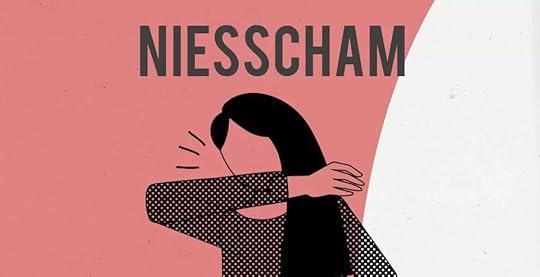
“sneeze shame”
“uncomfortable agonizing feeling when having to sneeze in public”
This one follows the same principle of Flugscham, which describes the shame (or being shamed) for continuing to fly everywhere despite being aware of the negative environmental impact. Since the pandemic has killed international travel, at least that’s one shame less to worry about.
das Todesküsschen

“little kiss of death”
“touching other people’s cheeks with one’s lips (as a greeting), which can cause higher infection and death risk”
The culture of dealing out kisses on the cheek as a greeting originally crept up to the North from Southern Europe. In some parts of Germany and France two kisses are the custom, starting with the right cheek. But what once used to be an affectionate (or dreaded) pattern of socializing has now become the (little) Kiss of Death.
der Virusverharmloser

“virus downplayer”
“person who deems a pathogen (and the threat resulting from it) as non-existent or non-threatening”
This one is reminiscent of and probably most definitely related to the classic Gehirnverweigerer, the person who refuses to use one’s brain.
der Wirrologe

“craze-ologist”
“(derogatory) for person whose statements about a pathogen are deemed exaggerated, contradictory or unscientifc.”
The German word “wirr” means “confused, crazed, tangled, etc.” Over the past year the insult Wirrologe has interestingly been used by both covid-deniers while referring to actual virologists, and by regular people to describe self-appointed experts or dubious scientists railing against reality.
Which are your favorite new German corona words? Browse through the list and let me know in the comments!
–
The post From “Sneeze Shame” to “Hygiene Knights”: 10 Strange New German Words Created By The Pandemic appeared first on LearnOutLive.
From “Sneeze Shame” to “Hygiene Knights”: 10 Strange New German Words Created By The Pandemic
After more than one year in the grip of a global pandemic, our daily lives have changed extensively. The way we work, travel, socialize and decompress have all undergone strange transformations. And these changes have begun to be reflected in the way we use language.
The Leibniz Institute for the German Language, an organisation for documenting and researching contemporary German language, has published a list of 1,200 brand-new pandemic-related German words. The German language is infamous for its long expressive compound nouns, so it’s no surprise that the pandemic has spurred the creation of many more.
Most of these words are related to the never-ending logistic and bureaucratic nightmare of managing individuals and society at large, such as the common “Mindestabstandsregelung” (minimum distance rule), the obligatory “Spuckschutztrennwand” (spit guard separation wall) or Angela Merkel’s own “Wiedereröffnungsorgien” (re-opening “orgies”).
In this article however, I’d like to focus on new German words that express some of the emotional, social and psychological realities of life under the coronavirus. We may not always be able to control what happens to us, and the sheer weight of such a crisis can be crushing and make us feel powerless, but finding creative new ways to talk about it can sometimes be a form of coping and empowerment. The following 10 words are a testimony to that creative spirit of language.
der Abstandsjubeltanz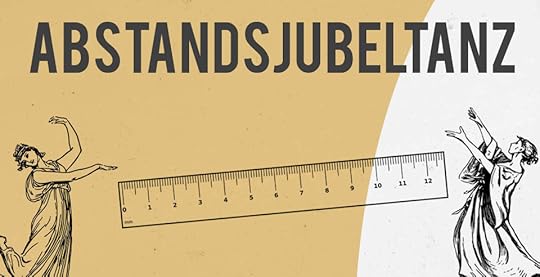
“distance celebration dance”
“rhythmical body movements in order to express happiness, in keeping with COVID-19 distance recommendations”
When receiving the good news about a promotion, child-birth, wedding, etc. pre-covid human beings used to celebrate with high-fives, hugs and kisses. In times of corona, we celebrate by flailing with arms and legs, safely distanced of course, whether by screen or the physical Mindestabstand.
das Abstandsbier
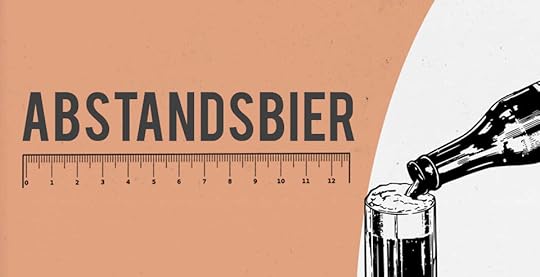
“distance beer”
“a beer which is enjoyed with others, in keeping with COVID-19 distance recommendations.”
Like in many other countries, the communal consumption of alcohol is of utmost importance in Germany; a great equalizer and social lubricant. But when all pubs have closed and you still want to meet for a beer with a friend, whether outside or on screen, it’ll have to be an Abstandsbier. Prost!
der Balkonklatscher
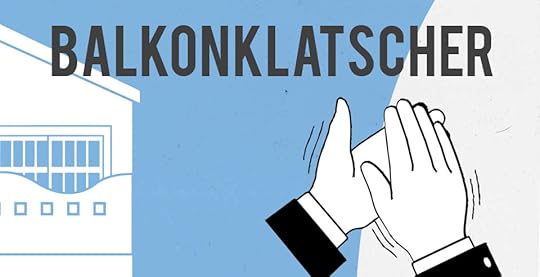
“balcony clapper”
“(often derogatory) for person who professes solidarity and acknowledgement for persons working in highly demanding or systemically relevant occupations, from open spaces by smacking their hands together.”
This new German word follows the mold of jesty German insults like Warmduscher (warm-showerer), Altpapiersammler (recyled paper collector) or Backofenvorheizer (oven pre-heater), where a seemingly inane activity such as taking a warm shower is personified into a noun to imply a personal weakness (often ironically). Some of these nouns outgrew their original denotation so that Warmduscher for example simply now means wimp.
The new Balkonklatscher is more complex. While it literally describes the person expressing gratitude from their balcony, it actually refers to the anger and frustration of nurses, doctors and social workers struggling with extreme strain and underwhelming salaries whom this applause doesn’t help one iota.
der Hygieneritter
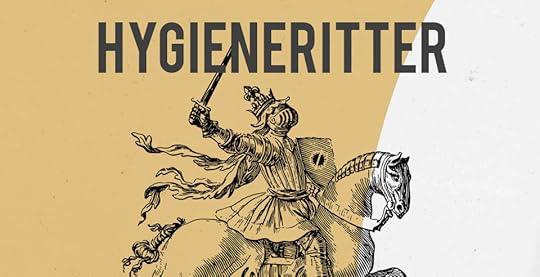
“hygiene knight”
“(jokingly) for someone who honorably, patiently and conscientiously adapts his behavior according to the hygiene measures during the COVID-19 pandemic.”
This honorable knight doesn’t rescue damsels in distress nor does he fight with fiery dragons. His mortal enemy is s approximately 50–200 nanometres in diameter, and his weapons of choice are hand sanitizer and staying at home. Pax vobiscum!
die Coronaausrede
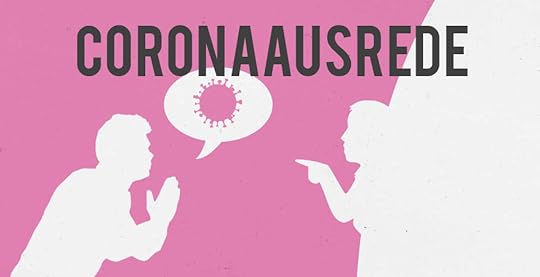
“corona excuse”
“(not always entirely serious) justificatory statement to explain personal misconduct due to the COVID-19 pandemic or measures taken against it.”
Who would have guessed that a global pandemic supplies a whole gamut of new excuses for social and moral conduct? Don’t want to meet the in-laws? — “Sorry, it’s for their own safety.” Got caught while illegaly partying? — “All these people? Why, they are part of my extended family!”
In one incident in Cologne for example, a hit-and-run bicycle rider when asked why she’d escaped the scene of the accident instead of helping the person she’d crashed into, apparently claimed: “In times of Corona I can’t help anyone.”
der Lockdownspeck
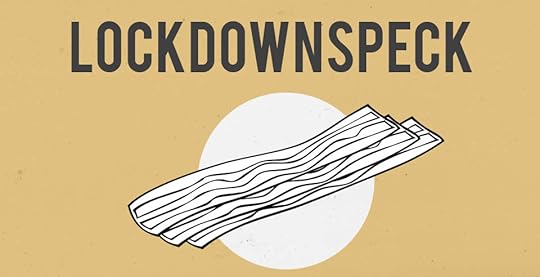
“lockdown bacon”
“increased body weight due to lack of movement, boredom, stress, etc. during the COVID-19 pandemic”
You may already know the famous German Kummerspeck (“grief bacon”) which describes the increase of body fat due to sorrow or grief (often) caused by romantic troubles. Lockdownspeck or Coronaspeck is its pandemic-related cousin.
die Niesscham
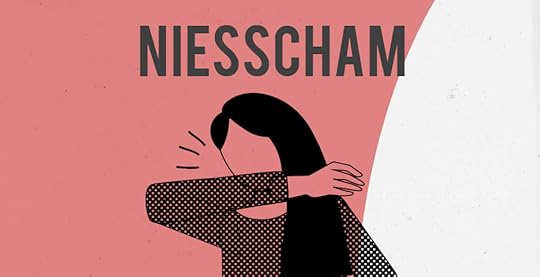
“sneeze shame”
“uncomfortable agonizing feeling when having to sneeze in public”
This one follows the same principle of Flugscham, which describes the shame (or being shamed) for continuing to fly everywhere despite being aware of the negative environmental impact. Since the pandemic has killed international travel, at least that’s one shame less to worry about.
das Todesküsschen
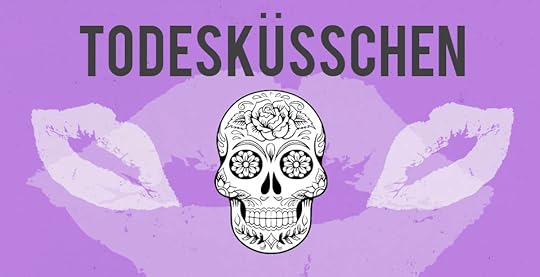
“little kiss of death”
“touching other people’s cheeks with one’s lips (as a greeting), which can cause higher infection and death risk”
The culture of dealing out kisses on the cheek as a greeting originally crept up to the North from Southern Europe. In some parts of Germany and France two kisses are the custom, starting with the right cheek. But what once used to be an affectionate (or dreaded) pattern of socializing has now become the (little) Kiss of Death.
der Virusverharmloser
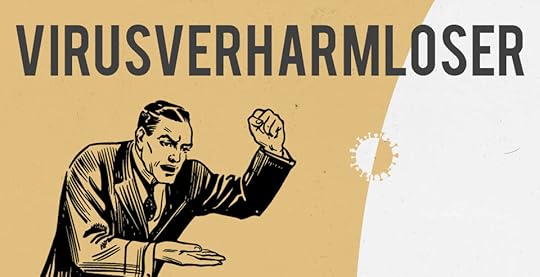
“virus downplayer”
“person who deems a pathogen (and the threat resulting from it) as non-existent or non-threatening”
This one is reminiscent of and probably most definitely related to the classic Gehirnverweigerer, the person who refuses to use one’s brain.
der Wirrologe
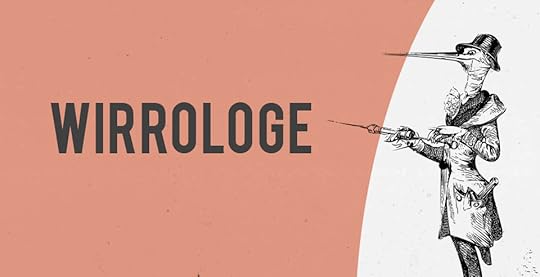
“craze-ologist”
“(derogatory) for person whose statements about a pathogen are deemed exaggerated, contradictory or unscientifc.”
The German word “wirr” means “confused, crazed, tangled, etc.” Over the past year the insult Wirrologe has interestingly been used by both covid-deniers while referring to actual virologists, and by regular people to describe self-appointed experts or dubious scientists railing against reality.
Which are your favorite new German corona words? Browse through the list and let me know in the comments!
–
The post From “Sneeze Shame” to “Hygiene Knights”: 10 Strange New German Words Created By The Pandemic appeared first on LearnOutLive.
October 26, 2020
7 Literary Classics In Simplified German
How do you make the leap from studying German textbooks, flipping flashcards and poring over worksheets to reading (and enjoying) classic literature?
Even native speakers who make their first acquaintance with the classics in high school often find themselves bewildered by archaic vocabulary and convoluted nested sentences.
Whenever the literary German dives into a sentence, that is the last you are going to see of him till he emerges on the other side of his Atlantic with his verb in his mouth.” – Mark Twain
In other words, for foreign language learners these timeless works are best left avoided until you reach the highest rungs of proficiency. So what to read in the meantime?
Today I’d like to share with you a number of German classics that have been rewritten in simplified German so that even intermediate and beginners can jump right in.
 Note: The following simplified classics are written for native speakers so any glossary will be in German only. If you’re looking for literature with English glossaries specifically designed for German learners, check out our German books.
Note: The following simplified classics are written for native speakers so any glossary will be in German only. If you’re looking for literature with English glossaries specifically designed for German learners, check out our German books.Full disclaimer: None of the below Amazon links are affiliated, i.e. I don’t get anything if you choose to buy one of these books, except perhaps for the satisfaction that you’re reading and (hopefully) enjoying classic German literature.
Die Verwandlung – Franz Kafka
This is the famous story of Gregor Samsa, the poor traveling salesman who awakes one day to find himself inexplicably transformed into a horrid insect.
The German publisher Spaß am Lesen Verlag created a simplified version of this classic. To illustrate the difference, let’s take a quick look at the first paragraph of the novella, first in the original then the simplified version:
Als Gregor Samsa eines Morgens aus unruhigen Träumen erwachte, fand er sich in seinem Bett zu einem ungeheueren Ungeziefer verwandelt. Er lag auf seinem panzerartig harten Rücken und sah, wenn er den Kopf ein wenig hob, seinen gewölbten, braunen, von bogenförmigen Versteifungen geteilten Bauch, auf dessen Höhe sich die Bettdecke, zum gänzlichen Niedergleiten bereit, kaum noch erhalten konnte. Seine vielen, im Vergleich zu seinem sonstigen Umfang kläglich dünnen Beine flimmerten ihm hilflos vor den Augen.
unruhig: restless | erwachte: awoke | ungeheuer: tremendous | Ungeziefer: insect | verwandelt: transformed | panzerartig: armor-like | hob: lifted | gewölbt: vaulted | bogenförmig: arched | Versteifungen: braces | geteilten: separated | auf dessen Höhe: on whose height | Bettdecke: beding | gänzlich: entire | Niedergleiten: sliding down | erhalten: maintain | im Vergleich zu: in comparison with | sonstig: otherwise | Umfang: girth | kläglich: despicably | dünn: thin | flimmerte: flickered | hilflos: helplessly
While the style is admittedly beautiful and brimming with characteristic foreboding right out of the gate, it’s not very accessible for learners, even if you know the meaning of most of the words. Now let’s compare it with the simplified version:
As you can see, not only did they generously remove or replace most difficult words, they also significantly simplified the syntax so that you end up with very short sentences. (If you’re interested in tackling the original, you can read a bilingual edition for free here.)
 Publisher: Spaß am Lesen Verlag
Publisher: Spaß am Lesen Verlag


